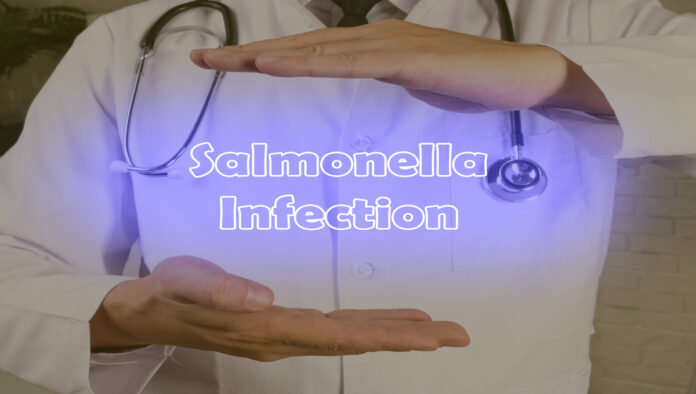Submissions of human Salmonella isolates are approaching pre-COVID-19 pandemic levels in Austria after a decline in 2020 and 2021, according to the Federal Ministry of Labour, Social Affairs, Health and Consumer Protection (BMSGPK).
In 2022, the number of isolates sent to the National Reference Centre for Salmonella increased by 118. This past year, 1,166 Salmonella isolates were submitted to the reference center compared with 1,048 in 2021. It is still below the 1,872 sent in 2019.
Salmonella Enteritidis was the most frequent serovar in humans, although its share has declined in recent years.
Salmonella Typhimurium, including the monophasic variant, increased from 2021. Since 2011 there had been a continuous decline, except for 2017, in the number of Salmonella Typhimurium isolates. Salmonella Infantis was third.
In 2022, one nationwide outbreak caused by Salmonella Typhimurium was registered with 28 patients but the source of infection was not found.
Austria was also part of a multi-country outbreak of monophasic Salmonella Typhimurium linked to Ferrero’s Kinder chocolate products with 14 cases.
A total of 34 family outbreaks, defined as two or more infected people in a family, involving 79 people were recorded.
Resistance against ciprofloxacin and against third-generation cephalosporins such as cefotaxime and ceftazidime is still rare, said BMSGPK.
Yersinia data
In 2022, the Austrian National Reference Centre for Yersinia at the Austrian Agency for Health and Food Safety (AGES) received 201 human isolates.
Of these, 107 were pathogenic, and 94 were non-pathogenic. Among the pathogenic ones, 105 belonged to Yersinia enterocolitica including 88 serovar O:3; biovar 4, and two were Yersinia pseudotuberculosis.
A total of 130 cases of yersiniosis were reported to BMSGPK. This was about the same level as in 2021. Based on data from 38 patients, 22 cases reported diarrhea, 11 had cases of abdominal pain and three each mentioned vomiting and fever.
More men were affected than women. The top impacted group was people aged 5 to 14 years old. Data shows yersiniosis is still a rare disease in Austria.
Two cases were imported in 2022, one each from Cuba and Spain. Both isolates were Yersinia enterocolitica serovar O:3, biovar 4.
In vitro, susceptibility testing of pathogenic Yersinia enterocolitica isolates revealed 17 with resistance to amoxicillin/clavulanic acid and three with resistance against tetracycline, and one to co-cotrimoxazole. All Yersinia enterocolitica isolates were resistant to ampicillin.
Source : Food Safety News

